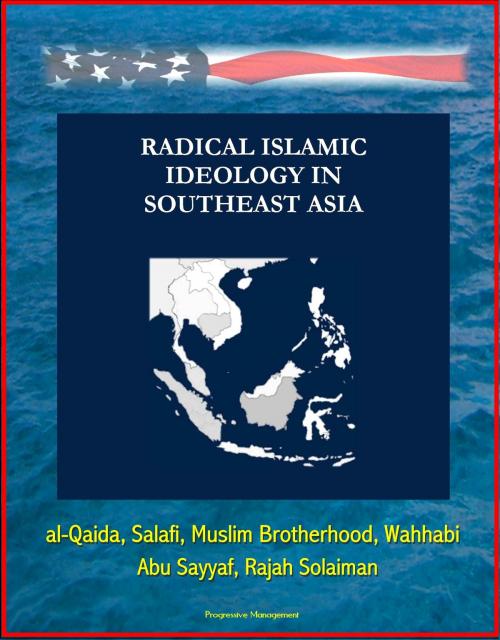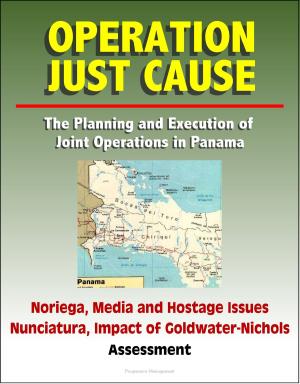Radical Islamic Ideology in Southeast Asia: al-Qaida, Salafi, Muslim Brotherhood, Wahhabi, Abu Sayyaf, Rajah Solaiman
Nonfiction, Social & Cultural Studies, Political Science| Author: | Progressive Management | ISBN: | 9781301720255 |
| Publisher: | Progressive Management | Publication: | February 15, 2013 |
| Imprint: | Smashwords Edition | Language: | English |
| Author: | Progressive Management |
| ISBN: | 9781301720255 |
| Publisher: | Progressive Management |
| Publication: | February 15, 2013 |
| Imprint: | Smashwords Edition |
| Language: | English |
In the years following the attacks of September 11, 2001, the Combating Terrorism Center (CTC) at West Point has extended significant effort to understand the ideologies, strategies, and structures that define terrorist groups, as well as the tactics and techniques they employ to inflict damage on their adversaries. As became painfully evident on 9/11, al-Qa'ida and its associated groups and networks—Sunni extremist movements—posed the most formidable terrorist threat to U.S. national security. For that reason, the CTC's research program has historically focused on Sunni militant groups.
The 17 July 2009 terrorist attacks on two hotels in Jakarta, Indonesia were a vivid reminder of the breadth of the battle space and the importance of constant vigilance. This break in Indonesia's four-year calm might be a one-time event or an indication of a resurgent regional terror threat. With crude weapons and little logistical support, a small group of people were capable of carrying out an attack that received global media attention. The focus on the perpetrators of this attack may also veil the importance of ideologies other than global jihadism to political violence in the region, such as various strands of ethno-nationalism. As this report highlights, global jihadism is not the only ideology animating terrorist violence, and ethno-nationalism is still a prevalent force in Southeast Asia.
The inherent difficulty of tactical defense makes it ever more important to address the broader ideological and strategic aspects of the terror threat in the hopes of identifying important trends. This volume examines the salience and content of jihadi ideology across Southeast Asia in an attempt to gain a better understanding of the types of threats and susceptibility to global jihadist violence in the region.
The volume continues the CTC tradition of trying to understand actors posing a real or potential threat to the United States and follows projects such as The Militant Ideology Atlas and Cracks in the Foundation. Edited by Dr. Scott Helfstein, this volume is an attempt to gain greater granularity on the nature of jihadism in Southeast Asia. The volume uses a country-based approach, focusing on jihadi ideology in Indonesia, Malaysia, Philippines, and Thailand. The final chapter looks at jihadi content on the internet. CTC hopes this report serves both the academic and practitioner communities to better understand the landscape of terrorism in Southeast Asia.
The Landscape of Jihadism in Southeast Asia * The Current and Emerging Extremist Threat in Malaysia * The Historical Development of Jihadi Islamist thought in Indonesia * The Influence of Transnational Jihadist Ideology on Islamic Extremist Groups in the Philippines: The Cases of the Abu Sayyaf Group and the Rajah Solaiman Movement * Ideology, Religion, and Mobilization in the Southern Thai Conflict * A Survey of Southeast Asian Global Jihadist Websites
In the years following the attacks of September 11, 2001, the Combating Terrorism Center (CTC) at West Point has extended significant effort to understand the ideologies, strategies, and structures that define terrorist groups, as well as the tactics and techniques they employ to inflict damage on their adversaries. As became painfully evident on 9/11, al-Qa'ida and its associated groups and networks—Sunni extremist movements—posed the most formidable terrorist threat to U.S. national security. For that reason, the CTC's research program has historically focused on Sunni militant groups.
The 17 July 2009 terrorist attacks on two hotels in Jakarta, Indonesia were a vivid reminder of the breadth of the battle space and the importance of constant vigilance. This break in Indonesia's four-year calm might be a one-time event or an indication of a resurgent regional terror threat. With crude weapons and little logistical support, a small group of people were capable of carrying out an attack that received global media attention. The focus on the perpetrators of this attack may also veil the importance of ideologies other than global jihadism to political violence in the region, such as various strands of ethno-nationalism. As this report highlights, global jihadism is not the only ideology animating terrorist violence, and ethno-nationalism is still a prevalent force in Southeast Asia.
The inherent difficulty of tactical defense makes it ever more important to address the broader ideological and strategic aspects of the terror threat in the hopes of identifying important trends. This volume examines the salience and content of jihadi ideology across Southeast Asia in an attempt to gain a better understanding of the types of threats and susceptibility to global jihadist violence in the region.
The volume continues the CTC tradition of trying to understand actors posing a real or potential threat to the United States and follows projects such as The Militant Ideology Atlas and Cracks in the Foundation. Edited by Dr. Scott Helfstein, this volume is an attempt to gain greater granularity on the nature of jihadism in Southeast Asia. The volume uses a country-based approach, focusing on jihadi ideology in Indonesia, Malaysia, Philippines, and Thailand. The final chapter looks at jihadi content on the internet. CTC hopes this report serves both the academic and practitioner communities to better understand the landscape of terrorism in Southeast Asia.
The Landscape of Jihadism in Southeast Asia * The Current and Emerging Extremist Threat in Malaysia * The Historical Development of Jihadi Islamist thought in Indonesia * The Influence of Transnational Jihadist Ideology on Islamic Extremist Groups in the Philippines: The Cases of the Abu Sayyaf Group and the Rajah Solaiman Movement * Ideology, Religion, and Mobilization in the Southern Thai Conflict * A Survey of Southeast Asian Global Jihadist Websites















